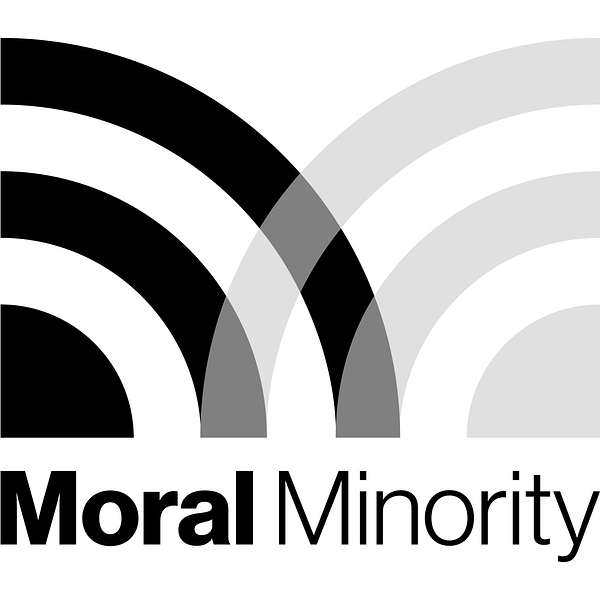
Moral Minority
Moral Minority is a podcast on moral philosophy and the problem of moral foundations. Why does morality matter? What grounds the moral principles to which we appeal when making judgments about right and wrong, justice and injustice? Do we have good grounds for making the judgments we do make–in our everyday lives, our relationships, our work, or in politics? And if not, where does that leave us?
Moral Minority
Dialectic of Enlightenment, Part 2
Use Left/Right to seek, Home/End to jump to start or end. Hold shift to jump forward or backward.
In this multi-part series, we examine the legacy of critical theory and the prospects of a recuperation of Marxist theory in the face of rising fascism by delving into the dense and fragmentary landmark text of the Frankfurt School, Dialectic of Enlightenment. In Part 2, we focus on the final completed fragment, "Elements of Anti-Semitism: The Limits of Enlightenment,' which analyzes the concept and instrumentalization of antisemitism in fascist political currents. Adorno and Horkheimer, over the course of seven theses, interweave insights from Freudan psychoanalysis, Marxist theories of reification and class struggle, and Nietzchean analyses of power to argue that antisemitism is a recurrent symbolic structure for the mobilisation of repressed violent urges. This structure casts whomever is unassimilable to the dominant order in the role of scapegoat for the ills of the wrong society. It is this shared feeling of impotence of a purportedly rational order to resolve the inherent contradictions of "the wrong society" that leads to the unleashing of irrational forces of destruction. The enlightenment is premised upon the promise of universal humanity and general emancipation, but the capitalist order keeps this nascent potential on the other side of the dialectic as a promise deferred. Is it possible to break the spell?